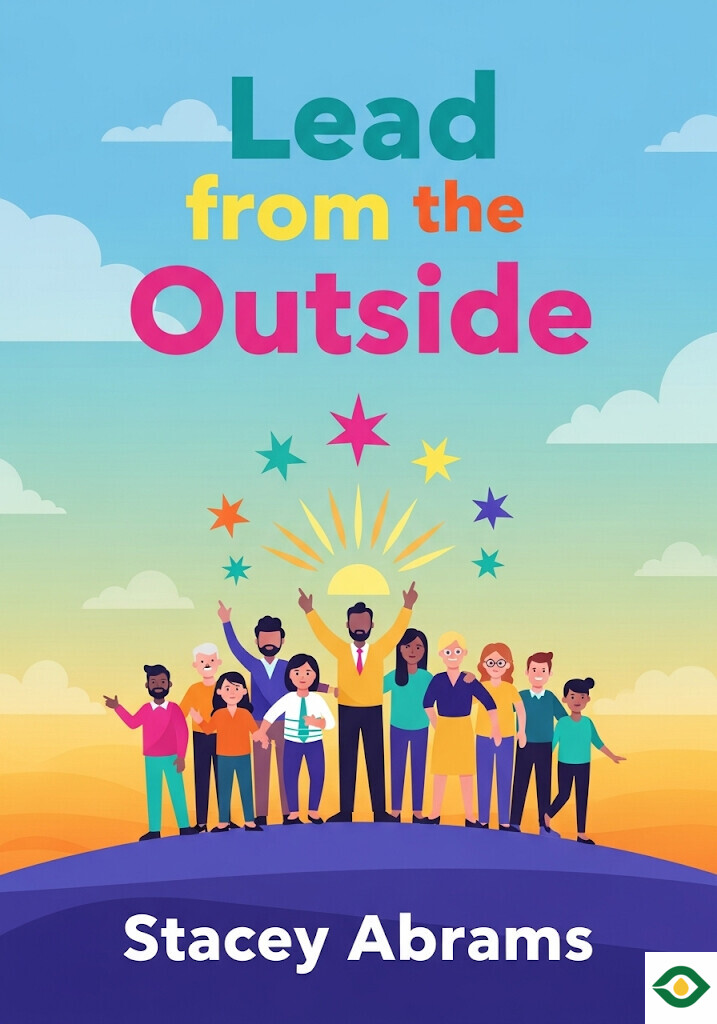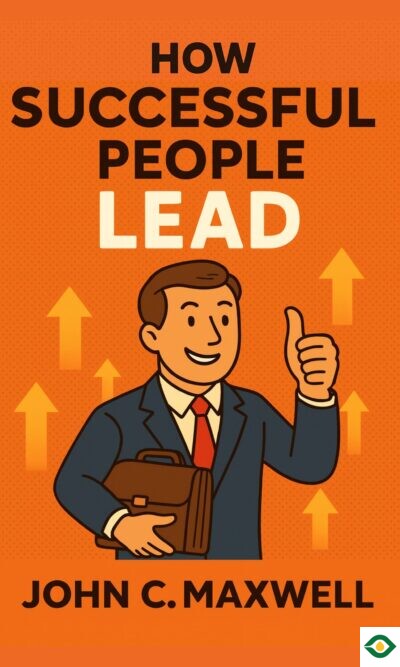Description
Success is not the same journey for everyone. For many people, the doors of opportunity don’t swing open just because they work hard. Women, people of color, LGBTQ+ individuals, and others outside the traditional halls of power face barriers that make progress much harder. But being on the outside does not mean you are powerless. In fact, as Stacey Abrams shows through her life and work, it can be the very thing that sharpens you, strengthens you, and prepares you to lead in unique ways.
Abrams’s story begins with a simple but brave choice: daring to dream bigger. When she considered applying for the prestigious Rhodes Scholarship, she doubted herself. No Black woman from Mississippi had ever been nominated. She nearly convinced herself not to try. But with encouragement, she applied, pushed past her fear, and though she didn’t win, she discovered something more important—courage. That courage carried her into Yale Law School and eventually into a career where she repeatedly redefined what was possible. Her story proves that ambition is the first key. You must allow yourself to want more, even when it feels risky.
Ambition isn’t just about setting goals—it’s about claiming your right to imagine a different future. Abrams used a spreadsheet during her college years to write out her dreams, mapping forty years of possible steps. That exercise gave her clarity and taught her the power of naming what you want. She encourages others to do the same. Write down the things you would love to pursue, even if they sound unrealistic. Then ask yourself not only what you want, but why you want it. Passion will carry you when the path is hard.
Of course, ambition collides with fear, especially for those who have been told, directly or indirectly, that leadership is not meant for them. Abrams herself faced doubts from allies who claimed Georgia was “not ready” for a Black woman governor. She was more than qualified, yet the perception of being “too different” lingered. This fear—often called minority fear—is a heavy burden. Outsiders worry that failure will hurt not just themselves but everyone who looks like them. At the same time, success can bring accusations of being “out of touch” with their own community.
The way forward is to face those fears head-on. Abrams chose to lean into her own strengths rather than pretending to be someone she wasn’t. Instead of fiery takedowns in the state legislature, she delivered speeches with sharp clarity and precision. She proved that power comes in many forms, and you don’t need to fit a stereotype to lead effectively. The lesson is clear: acknowledge your fears, but don’t let them define your choices. Use your differences as assets.
Another powerful strategy is learning to hack traditional systems. The world is not a pure meritocracy. Opportunities often flow through closed networks, where insiders hire insiders. Abrams refused to accept these barriers as permanent. Instead, she founded the New Georgia Project, an organization that registered hundreds of thousands of new voters. Even when political leaders tried to block these efforts, the work laid the foundation for lasting change. Her approach shows how outsiders can push open doors by being creative, persistent, and resourceful. Look for hidden entry points, unexpected allies, and alternative routes. Systems may be designed to exclude, but they are never unbreakable.
No one climbs alone. Abrams stresses the importance of building a support system, almost like creating your own personal board of advisors. Mentors can come in many forms: a sponsor who advocates for you behind closed doors, a peer who understands your struggles, or even someone outside your field who provides honest feedback. What matters is seeking guidance from diverse perspectives. Just as Abrams learned from a financial manager who helped her develop people skills, we too must be willing to learn from unexpected teachers.
Money, however, is one of the most stubborn obstacles. Many outsiders begin their careers weighed down by debt, low credit scores, or the responsibility of supporting family members. Abrams herself struggled with debt even after graduating from Yale. Instead of hiding from her financial issues, she faced them directly, paying off her credit cards and developing financial fluency. For leaders, knowing how money works—whether personal budgets, campaign fundraising, or organizational finances—is essential. You cannot lead effectively if you ignore financial realities.
Leadership also requires embracing failure. Abrams recalls moments when she made mistakes, such as misreading a critical line in a legal case. Owning her error was difficult, but honesty preserved her integrity and taught her resilience. Outsiders may feel pressure to be perfect, but perfection is not possible. What is possible is accountability. Admitting mistakes, learning from them, and moving forward with courage builds lasting trust.
When it comes to managing time and energy, Abrams rejects the illusion of “work-life balance.” Instead, she suggests thinking of life like a game of Jenga. Some blocks must be pulled, some stacked higher, and sometimes the tower falls. The point is not to balance everything equally, but to prioritize honestly and strategically. At different times, different priorities will matter more. That flexibility, rather than rigid balance, keeps life sustainable.
Another lesson is resourcefulness. Outsiders may lack money, connections, or institutional power, but creativity can often substitute. Abrams once slowed down harmful legislation by using an overlooked procedural rule that allowed each member extra speaking time. Her clever use of the rules delayed the process enough to block some bills. This is a reminder that even when outnumbered, strategic use of resources can change outcomes. Think carefully about the assets you do have—your knowledge, relationships, persistence—and use them in inventive ways.
Small wins matter. Outsiders rarely gain power all at once. Progress often comes in increments. Abrams encourages setting clear definitions of what success looks like in each situation. A single victory may not transform everything, but combined with others, it can create sweeping change. Using tools like power mapping—identifying who holds influence and how to connect with them—helps you move closer to long-term goals.
In the end, the journey from outsider to leader is about courage, clarity, and persistence. You must dare to claim ambition, face fear, challenge systems, build allies, and manage both money and mistakes. You must accept that leadership does not come from waiting for permission but from insisting on your right to participate. Every outsider who steps forward widens the path for those who come after.
The true gift of being an outsider is perspective. Seeing the world from the margins sharpens your vision of what is broken and what must be fixed. That clarity is the seed of leadership. By embracing your ambition, confronting your fears, hacking systems, and using creativity, you not only carve a place for yourself—you create space for others to rise with you.





